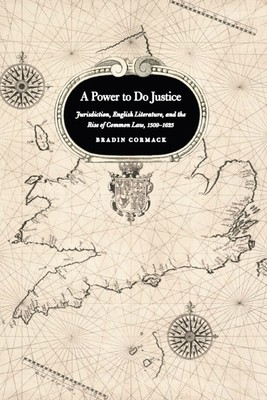
- We will send in 10–14 business days.
- Author: Bradin Cormack
- Publisher: University of Chicago Press
- ISBN-10: 022606154X
- ISBN-13: 9780226061542
- Format: 15 x 22.6 x 2.5 cm, softcover
- Language: English
- SAVE -10% with code: EXTRA
Reviews
Description
English law underwent rapid transformation in the sixteenth century, in response to the Reformation and also to heightened litigation and legal professionalization. As the common law became more comprehensive and systematic, the principle of jurisdiction came under particular strain. When the common law engaged with other court systems in England, when it encountered territories like Ireland and France, or when it confronted the ocean as a juridical space, the law revealed its qualities of ingenuity and improvisation. In other words, as Bradin Cormack argues, jurisdictional crisis made visible the law's resemblance to the literary arts.
A Power to Do Justice shows how Renaissance writers engaged the practical and conceptual dynamics of jurisdiction, both as a subject for critical investigation and as a frame for articulating literature's sense of itself. Reassessing the relation between English literature and law from More to Shakespeare, Cormack argues that where literary texts attend to jurisdiction, they dramatize how boundaries and limits are the very precondition of law's power, even as they clarify the forms of intensification that make literary space a reality.
EXTRA 10 % discount with code: EXTRA
The promotion ends in 18d.17:48:28
The discount code is valid when purchasing from 10 €. Discounts do not stack.
- Author: Bradin Cormack
- Publisher: University of Chicago Press
- ISBN-10: 022606154X
- ISBN-13: 9780226061542
- Format: 15 x 22.6 x 2.5 cm, softcover
- Language: English English
English law underwent rapid transformation in the sixteenth century, in response to the Reformation and also to heightened litigation and legal professionalization. As the common law became more comprehensive and systematic, the principle of jurisdiction came under particular strain. When the common law engaged with other court systems in England, when it encountered territories like Ireland and France, or when it confronted the ocean as a juridical space, the law revealed its qualities of ingenuity and improvisation. In other words, as Bradin Cormack argues, jurisdictional crisis made visible the law's resemblance to the literary arts.
A Power to Do Justice shows how Renaissance writers engaged the practical and conceptual dynamics of jurisdiction, both as a subject for critical investigation and as a frame for articulating literature's sense of itself. Reassessing the relation between English literature and law from More to Shakespeare, Cormack argues that where literary texts attend to jurisdiction, they dramatize how boundaries and limits are the very precondition of law's power, even as they clarify the forms of intensification that make literary space a reality.


Reviews